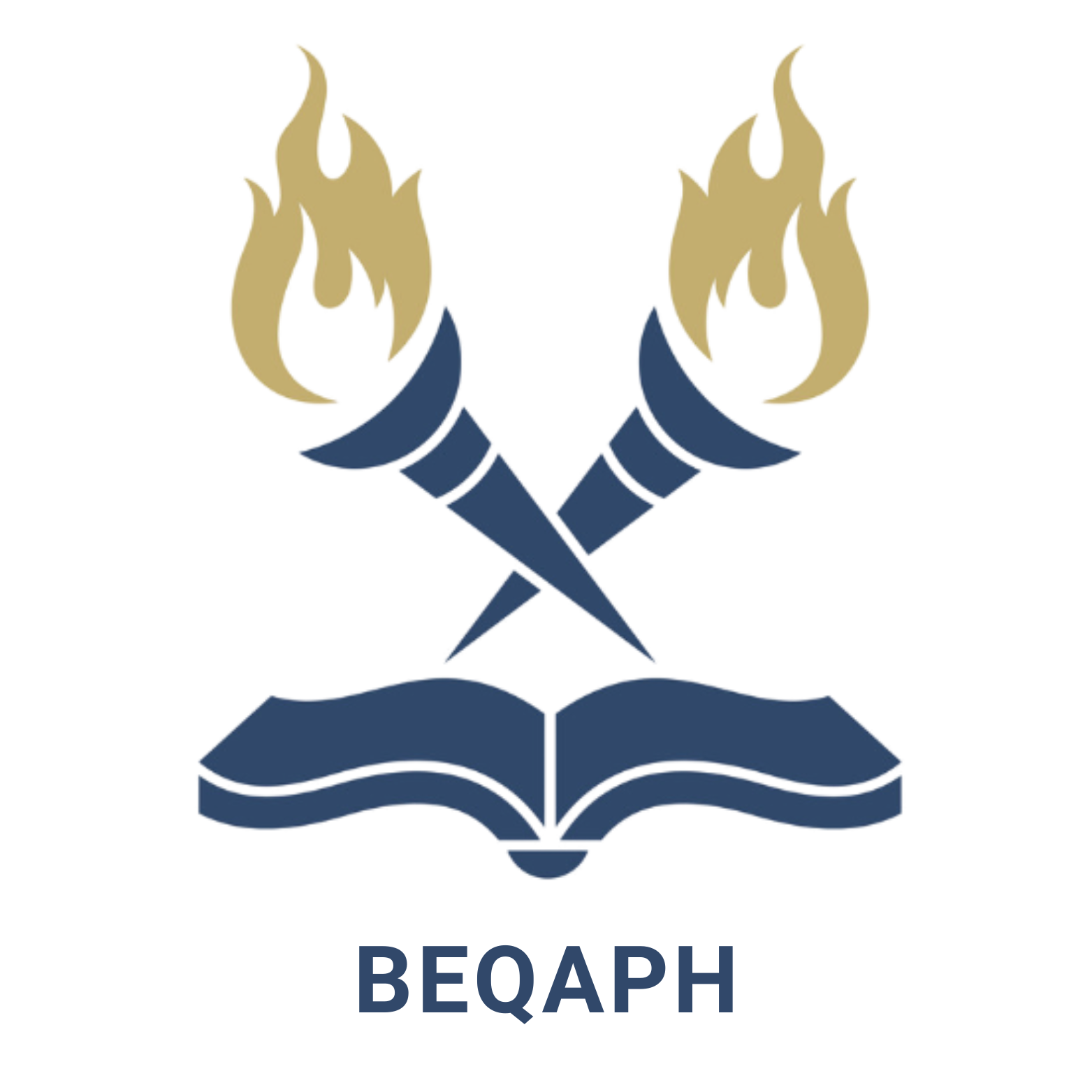The BEQAPH logo features two golden torches crossing over an open book, symbolizing:
- Knowledge and Enlightenment – The torches represent the light of education that dispels ignorance and empowers learners and communities.
- Access and Protection – The open book signifies accessible learning, while the crossed torches reflect the dual mission of ensuring quality education and upholding the rights and safety of every child.
- Guidance and Leadership – The imagery aligns with the role of school leaders, system administrators, and guidance advocates in lighting the way toward inclusive, safe, and data-informed school environments.Performance.
